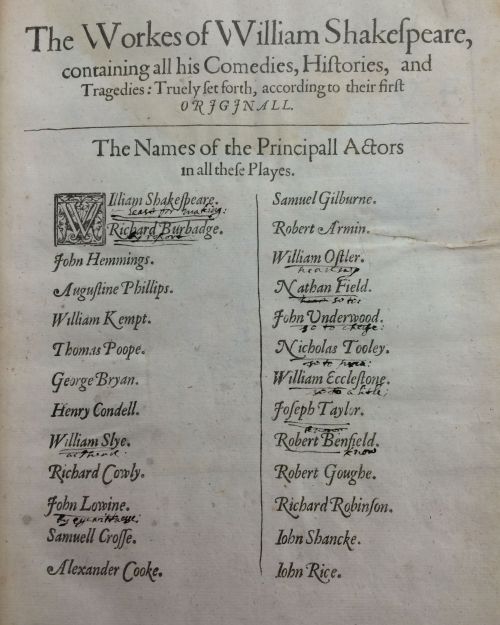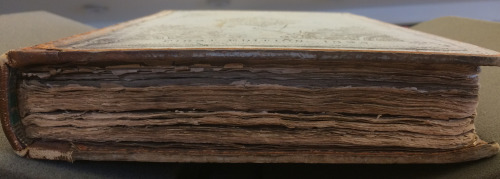book-historia:Happy almost birthday, Shakespeare! Or should I say Bard-thday? Recently, in honour
book-historia: Happy almost birthday, Shakespeare! Or should I say Bard-thday? Recently, in honour of the 400th anniversary of William Shakespeare’s death (conveniently for celebratory purposes, he was born on April 23 1564 and died on the same day in 1616), I was given the incredible opportunity to have a private audience to go through the University of Glasgow’s copy of the First Folio, page by page. I’ve written a short article for the University Library’s blog, which you can find here, but I wanted to share some other images on my own blog that I didn’t have room for on the official post! The University of Glasgow’s First Folio (more properly known as Mr. William Shakespeare’s Comedies, Histories, & Tragedies) is able to tell so many more stories than those of the plays contained in its pages- of the history of the antiquarian book trade, of the printing practices of the Renaissance, of book ownership and value. Rest assured, you’ll probably be seeing posts from me in the future about all of these things, as well as the typographical ornaments used in the book, which I found fascinating. The University’s Folio is particularly interesting due to the notations by past owners, including one who had apparently seen at least one of the original Chamberlain’s Men “By eyewittnesse”. But my favourite bit of the later additions is the morbid little poem on the reverse of one of the flyleaves: “Pitty it is the fam’d Shakespeare/ Shall ever want his chin or haire.” A superb introduction to the first folio in the care of the University of Glasgow Special Collections by my Wife Alexandra Newman. Within this short piece is a link to a University of Glasgow Library blog post written by the same author which goes into further depth to concisely explain what the first folio is and the interesting features of this particular book. Well done! -- source link
Tumblr Blog : book-historia.tumblr.com
#william shakespeare#shakespeare 400#first folio#book historia#alexandra newman#history#antique book#english literature#17th century#english theater








